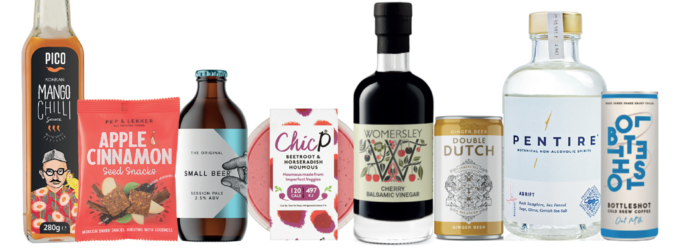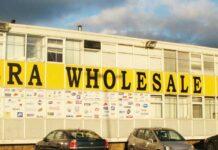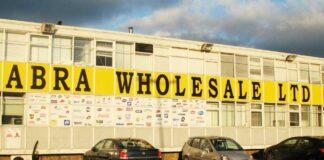Paul Hill speaks to Philip Linardos, an entrepreneur who is pioneering a new way to distribute food and beverage products directly from the producers to independent buyers with his company ShelfNow.
PH: How would you describe your company?
PL: We are an online wholesale marketplace. We are doing wholesaling, but we’re not doing it the traditional way of buying and selling. Instead, we’re facilitating trading activity between seller and buyer, which then creates greater transparency and profit margins. This means our buyers know where they are buying from and sellers know where their products are going to. This doesn’t always happen in traditional wholesale.
How did it start?
Before launching at the end of 2019, we started building the framework in 2018. At the same time, we started to create demand and build relationships with customers. We then did a small pivot into the business-to-consumer market during Covid-19, where we went straight to our consumers and also worked with the NHS to supply some of its doctors.
How does it work?
Through our technology, we have algorithms in place that enable buyers to find the right producers or suppliers to buy from. We use data to algorithmically match retailers and outlets with what we like to call the ‘most relevant proposition’. We base this algorithm on cost, locations, provenance, packaging requirements and so on, with some of these attributes having different weights of importance within the framework. There is an elaborate data science behind all of this, and it saves a lot of time and effort for everyone involved. All of the programmes we use are ours, as we own the AI. Despite it sounding complicated in the back end, it is a very simple user experience for our buyers, who are able to select products from across 12 countries.

How do you make money from the process?
We make our money by taking a cut from the sales of our sellers. We don’t take any money from the buyer at all – our service is completely free to use and there are no upfront fees for a company to start with us. This makes it a very fair marketplace as buyers and sellers can test it out, unlike traditional wholesalers who will have their terms and agreements in place from the start. We treat it like partnerships where we look to grow with them and all they have to do is sign up and browse through our producers. They also have the option to request that we list certain brands or product types. I compare it to Airbnb in the way we have opened up the market to more producers like they have done for property owners, and by doing that have demonopolised the market. I have spoken to brands in countries including Italy and Spain that said they couldn’t agree deals with UK wholesalers, but we are now giving them that option.
Who do you work with?
We don’t work with mainstream brands. Our brands are almost always independent, and are small-to-medium-sized, speciality, challenger brands. Some could be small start-ups, whereas some could be several years old. The brands we work with are not necessarily trying to get into the big retailers, but are not posh or niche, either – they’re what I like to call ‘non-mainstream’, and that is 90% of the overall food and drink market.
Good-quality food should not be seen as premium, niche, posh or unattainable to retailers. We want to make it more affordable and profitable within its margin. Shelfnow aims to make artisan brands more accessible to all. However, the producers on the digital marketplace are, in some instances, unique and premium.
Read more: Advice: How wholesalers can operate more efficiently
Do you work with convenience stores?
We haven’t worked with traditional convenience stores as much, although we are open to non-symbol-group-affiliated independent stores. We’re hoping to get the message across to them that buying from our types of suppliers will incur the same – if not better – cost and profit margins as going to big suppliers through traditional wholesalers.
With so many suppliers, how do you measure your sustainability?
We’re working on measuring our CO2 impact in the near future, which we believe will prove our system is more sustainable than traditional wholesalers. Our products go direct to retailers and don’t have to be stored in a depot, saving on transport and storage.
What is your long-term plan?
We already have thousands of suppliers we work with. The average wholesalers in the UK has around 4,000 SKUs, but we could work with 100,000 if we really wanted to as there’s no limit to it. We also aim to be in the different geographies on the buyer’s side as well as the seller’s in the coming years.








